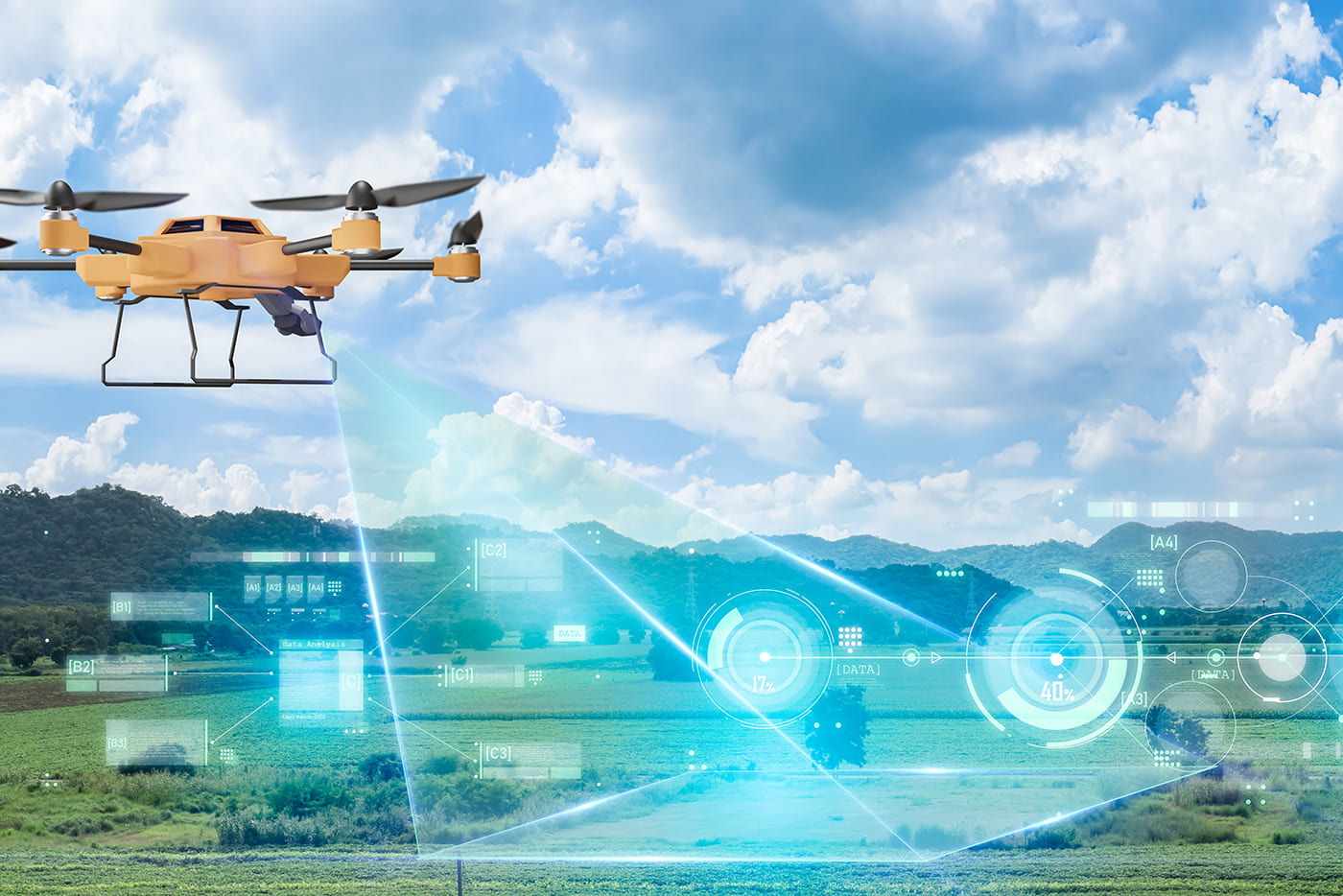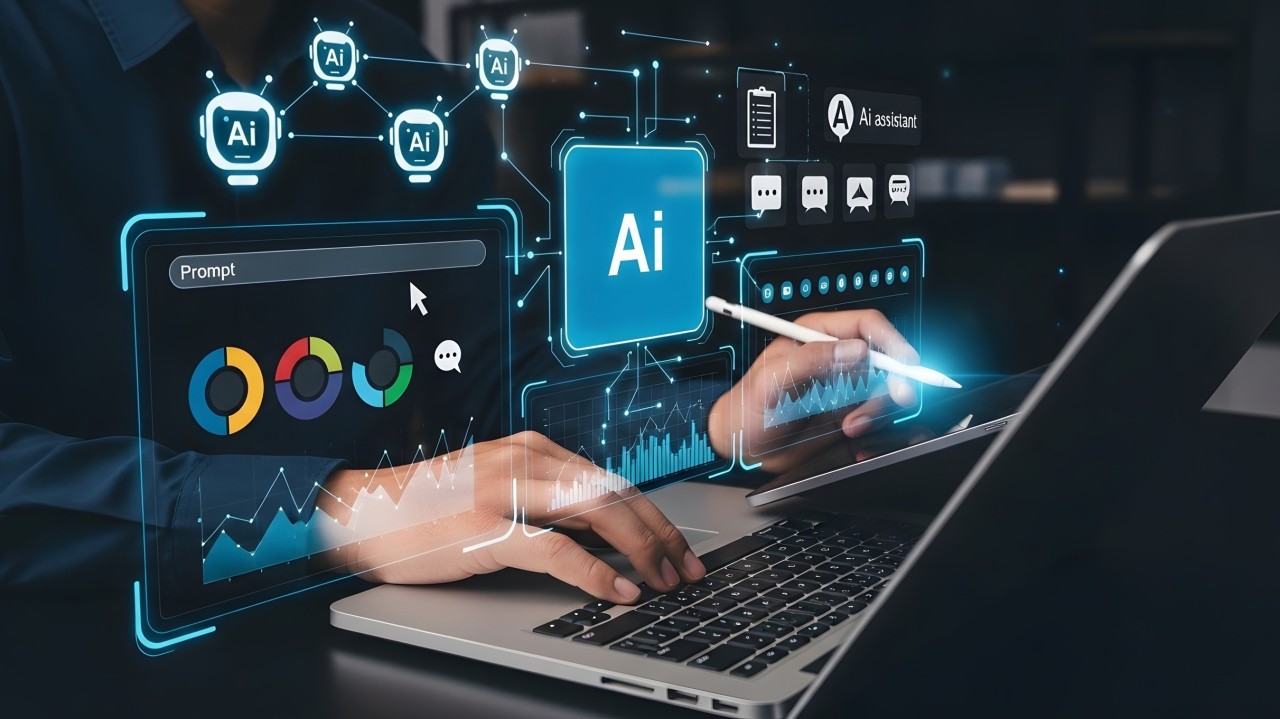The Biggest Future Trends In Agriculture And Food Production
7 February 2022
To feed the growing global population, estimates suggest we’ll have to increase food production by as much as 68 percent by 2050. And that’s not the only challenge; there’s also the fact that the middle-class population is growing, which generally brings with it increased demand for meat over grains, legumes, and wheat. Satisfying this demand for more food – and, most likely, more meat – presents a huge challenge for our already struggling planet, especially when you consider that the food system accounts for 26 percent of total global greenhouse gas emissions. (Agriculture, forestry, and land use make up 18.4 percent of this, while the rest is down to things like packaging, refrigeration, and transport.)

The obvious, and arguably the simplest, solution is for us all to adopt a plant-based diet. (Research shows that excluding meat and dairy is the single most impactful way for people to reduce their environmental impact.) But, if we’re honest, getting billions of people to switch overnight to a fully vegan diet is, at best, unlikely. After all, meat is deeply ingrained in many cultures, as is dairy.
With all this in mind, it’s clear that we need urgent new innovations in agriculture and food production. In this article, I outline the two broad trends that I believe will revolutionize our food system.
Trend 1: Reimagining farming methods
Embracing new farming methods could help the agriculture industry reduce its environmental impact while still increasing productivity. While previous evolutions in farming have largely been driven by mechanical improvements (namely, bigger, better machinery) or genetic advances (better seed, more effective fertilizers, etc.), the next big transformation is being driven by digital tools. For example, we have:
- Automation – including the use of robots, drones, and autonomous tractors to make farming more efficient.
- Precision farming – which involves applying irrigation, fertilizers, and pesticides at variable rates, depending on the needs of crops, rather than uniformly applying them at set times, quantities, and frequencies.
A good example of precision farming comes from a collaboration between Israeli company Phytech and Swiss agrichemical company Syngenta. Together, they have developed a monitoring system that includes plant growth sensors and soil moisture sensors to help farmers continually monitor crop growth and soil health and take action when and where it’s needed.
Other key trends to watch in farming methods include:
- More localized, urban farming – i.e., producing food closer to the people who need it, thereby reducing food miles.
- Vertical farming (the practice of growing crops in vertical layers) and hydroponics (growing plants in nutrient-rich water) – are both methods that generally use less water, soil, and space than traditional field farming methods. If this sounds niche, think again; the world’s largest vertical farm, located in Newark, New Jersey, shows that vertical farming can be done on a huge scale and with impressive results. Creators AeroFarm say the vertical farm is 390 times more productive per square foot than a field farm.
Trend 2: Finding new ways to create food (especially meat)
Did you know that one-third of croplands are used to grow feed for livestock rather than humans? It’s an astonishing statistic. If we could only find innovative new ways to create meat, more of that land could be given over to growing crops for humans – something that will surely become more pressing as the global population grows.
This is where cultured (lab-grown) and plant-based meats come into play. Starting with plant-based meats, it’s clear that the market for meat alternatives is thriving. Chains like Burger King are routinely stocking plant-based burgers, and plant-based pioneers Beyond Meat became one of the most successful IPOs in history after going public at $1.5 billion and being valued at $13 billion less than three months later. In fact, estimates suggest meat alternatives could account for 10 percent of the global meat industry by 2029.
For those who don’t want to make the switch to plant-based meats, cultured meat – which is genetically the same as real meat but is produced from animal cells – could prove to be a viable alternative. Real meat without the factory farms and animal slaughter? Sounds pretty good to me. It's early days for cultured meat, but there are signs that the market – and regulators – are coming around to the idea. In 2020, Singapore became the first nation to approve cultured meat for sale.
There’s also the potential for 3D printing to play a role in food production. Barcelona-based startup NovaMeat is leading the way in 3D printing plant-based food and has already successfully created the world’s first 3D printed piece of “meat” that apparently mimics the fibrous nature of real meat.
Related Articles
The 4 Myths Holding Back The AI Revolution, According To Nokia Bell Labs
By now, “smart” versions exist of just about every home appliance, gadget and gizmos we can think of. However, manufacturers continue[...]
Dreamforce 2025: Why I’m Excited About Salesforce’s Agentic Enterprise Revolution
By now, “smart” versions exist of just about every home appliance, gadget and gizmos we can think of. However, manufacturers continue[...]
Robots And AI Are Rewriting The Future Of Surgery
By now, “smart” versions exist of just about every home appliance, gadget and gizmos we can think of. However, manufacturers continue[...]
The 8 Biggest AI Trends For 2026 That Everyone Must Be Ready For Now
By now, “smart” versions exist of just about every home appliance, gadget and gizmos we can think of. However, manufacturers continue[...]
AI, Consciousness And Longevity: A Conversation With Deepak Chopra
By now, “smart” versions exist of just about every home appliance, gadget and gizmos we can think of. However, manufacturers continue[...]
AI Chatbots Are Quietly Creating A Privacy Nightmare
By now, “smart” versions exist of just about every home appliance, gadget and gizmos we can think of. However, manufacturers continue[...]
Sign up to Stay in Touch!
Bernard Marr is a world-renowned futurist, influencer and thought leader in the fields of business and technology, with a passion for using technology for the good of humanity.
He is a best-selling author of over 20 books, writes a regular column for Forbes and advises and coaches many of the world’s best-known organisations.
He has a combined following of 4 million people across his social media channels and newsletters and was ranked by LinkedIn as one of the top 5 business influencers in the world.
Bernard’s latest book is ‘Generative AI in Practice’.










Social Media